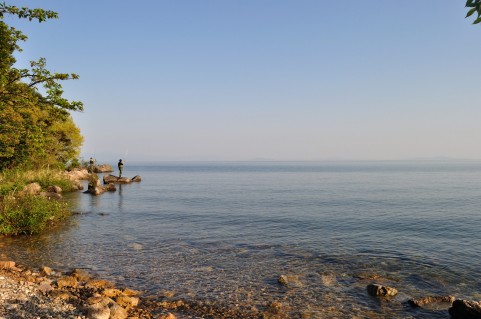August 15, 2013
MOE Releases Survey Results on Impacts of Climate Change on Water Quality in Japan
Keywords: Climate Change Government Water

Japan's Ministry of the Environment (MOE) published on March 28, 2013, the results of a survey begun in fiscal 2009 aimed at identifying the impacts of climate change on water quality and ecosystems in Japan. The resulting projections will be used. to discuss measures for adapting to predicted impacts.
Of 4,477 observation points in Japan consisting of 3,121 points in rivers, 265 in lakes and ponds, and 1,091 in sea areas, an increasing water temperature trend was observed at 72% of points in summer and 82% in winter during the three decades from the 1980s to 2000s. A statistically significant increase in water temperature in winter or summer was observed at 1,405 points; 32% of those in rivers, 26% in lakes and ponds, and 31% in sea areas.
The ministry chose Lake Biwa, the largest lake in Japan, as a model and conducted a simulation of a decade in the near future, from 2030 to 2039. The results indicate that the annual average temperature on the lake surface will increase by 1.2 to 1.3 degrees Celsius during that time period. Total phosphorus concentration in layers below the surface tends to increase as dissolved oxygen decreases after a certain period when the water temperature is not vertically uniform.
According to the results of a simulation of the Omonogawa River (flowing through Akita Prefecture into the Japan Sea), the river's annual average water temperature will increase by 0.5 degrees Celsius. Such a minor change in water temperature is expected to account for only a small part of variation in water quality.
Related
"JFS Newsletter"
- Shaping Japan's Energy toward 2050 Participating in the Round Table for Studying Energy Situations
- Implementation of the Paris Climate Agreement: A Report on Japan's Round Table for Studying Energy Situations
- Auto Sales Industry Cooperates to Tackle Social Responsibility: Examples from Yamagata, Japan
- Yokohama FC: Leader in Eco-Activities through Football-Related Carbon Offset
Related
"Popular Articles"
- Large Ozone Hole Observed Again in 2011
- Japan's Pro Baseball Teams Start Eco-Project to Cut Energy Use by 6%
- Manufacturer Saving Energy by Growing Vertical Gardens on Factory Walls
- Sony Draws Up 'Road to Zero' Plan for Zero Environmental Footprint
- Tokyo Announces Innovative 10-Year Strategy against Climate Change


